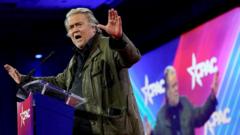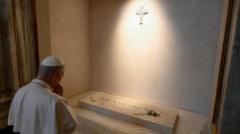In March 2013, Cardinal Jorge Mario Bergoglio made history by becoming Pope Francis, the first pontiff from South America and the first non-European in over a millennium.
Pope Francis: A Transformative Election Reflecting Shifts in Global Catholicism

Pope Francis: A Transformative Election Reflecting Shifts in Global Catholicism
Exploring the historic election of Pope Francis in 2013 and its significance for the Catholic Church.
In a landmark event, Cardinal Jorge Mario Bergoglio of Argentina was elected as Pope Francis in March 2013, marking a pivotal moment for the Roman Catholic Church. At 76 years of age, Bergoglio became the first pope from the global south, following a conclave that reflected the changing demographics of the Catholic faithful. His election was seen as a decisive signal that the church's future was increasingly rooted in regions with growing populations of Catholics.
Born to Italian immigrants in Buenos Aires, Bergoglio was recognized for his humble demeanor and commitment to social justice, advocating for the marginalized in society. His tenure began amid various challenges, including a declining number of priests, a competitive rise of evangelical churches, and a sexual abuse crisis that had tarnished the church’s reputation in many Western countries.
As cardinals convened to select the next leader, they engaged in extensive discussions regarding the church’s direction and the qualities needed in a new pope. Cardinal Christoph Schönborn of Vienna emphasized that the role transcends political leadership, defining it as a spiritual guide for believers rather than a corporate executive. The choice of Pope Francis not only reshaped the narrative around the papacy but also heralded a new era for the Catholic Church's mission and outreach in a changing world.




















